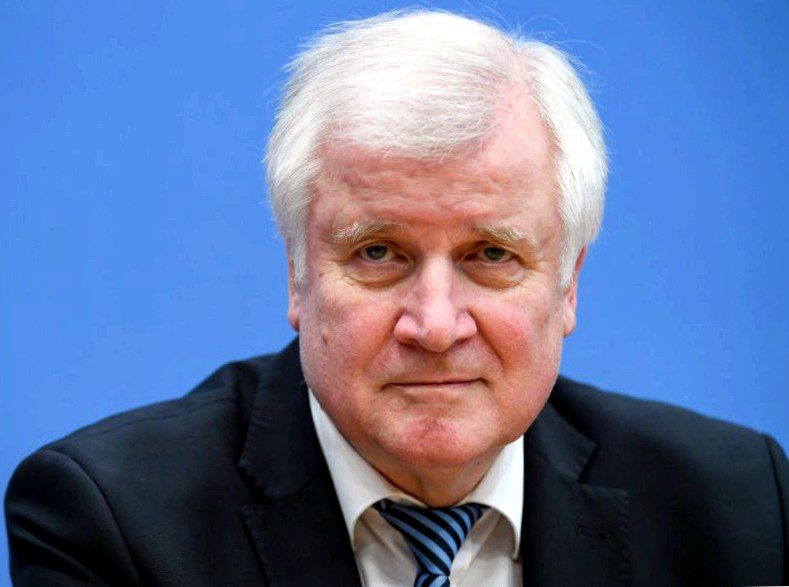Criticism of seehofer’s plans for deportation detention

Federal interior minister horst seehofer’s plan to return deportation prisoners to normal prisons has met with massive criticism. "Detention pending deportation and criminal detention are two different things," justice minister katarina barley (SPD) emphasized on deutschlandfunk radio.
This separation must be respected. North rhine-westphalia’s integration minister joachim stamp (FDP) referred to hurdles under european law, but considers special regulations to be possible in the event of danger. The prison officers’ association complained that many prisons are already overcrowded today.
The federal ministry of the interior is currently working on a "law to improve the enforcement of the obligation to leave the country". A cornerstone paper from seehofer’s ministry envisages, among other things, suspending the requirement to separate deportees from prisoners of conscience. The background to this is the lack of detention places for deportees, which are intended to prevent foreigners who are obliged to leave the country from going into hiding. In 2014, the european court of justice ruled that they could no longer be held in regular detention centers until their deportation, but only in specially designated facilities.
The interior ministry defended its plan: "of course, it’s not about putting them in the same cell or the same wing with criminals," state secretary stephan mayer (CSU) told the newspaper passauer neue presse. "In exceptional cases, it is a matter of accommodating persons awaiting deportation in the same premises of a correctional facility."In addition, the legal conditions for ordering detention pending deportation "should be relaxed somewhat and the possibilities of detention pending deportation expanded". According to mayer, there are currently only 420 deportation detention places in germany.
Union faction leader ralph brinkhaus backed seehofer. "The authorities must be given new powers to enforce the obligation to leave the country," the CDU politician told the newspaper "bild am sonntag.". The number of detention places must be increased. In the future, it must become much more difficult to avoid deportation. "The federal minister of the interior has our full support here."
Barley, on the other hand, stressed that the biggest problem with deportations is still that the countries of origin do not take back the rejected asylum seekers. "The ministry of the interior has been in charge of negotiating agreements for a long time, and it doesn’t succeed."There have been numerous legal tightenings in the last few years. "It’s not a regulatory deficit, it’s an enforcement deficit."
Stamp also stressed that detainees awaiting deportation and prisoners of conscience cannot be held under the same roof without further ado. But there is the possibility of creating special regulations, for example for dangerous people, the FDP politician said on deutschlandfunk radio. This must be checked.
The association of prison officers warned against overburdening the justice system. There was a shortage of money, personnel and, in many federal states, detention facilities. Since detainees awaiting deportation had to be housed in separate facilities, some federal states were faced with insurmountable problems, the union explained.
To speed up asylum procedures and deportations, the grand coalition also wants to declare algeria, morocco, tunisia and georgia as safe countries of origin. The bundestag approved the draft law on friday, but the greens still have considerable reservations about it. It is therefore questionable whether the new regulation will receive the necessary approval in the bundesrat.
Representatives of the union once again solicited the approval of the states with green government participation. It is a matter of preserving the substance of the asylum system and its acceptance among the population, said the secretary of state in the federal ministry of the interior, gunter krings (CDU), to the editorial network germany. Union interior expert matthias middelberg (CDU) told "bild": "over 95 percent of applicants from algeria, morocco, tunisia or georgia do not get asylum. In these cases, the basic law expressly provides for speeding up the procedures by classifying the countries as safe."
RELATED POSTS
Many coburgers wanted to experience the green anton hofreiter Toni hofreiter’s speech on wednesday evening at the munchner hofbrau was largely state-supporting. The chairman of the bundnis 90/die grunen… |

Censorship to party congress: china interrupts google and tunnel services According to experts, never before have so many people been affected by the blocking of a web service. Tunnel connections that allow unfiltered access to… |
Children learn in the beaver castle The idea came from claus schenk, the director of the house of the black mountains in oberbach, says kindergarten director christine eberth-booms. She and… |
The people of ahor want a new doctor Ahorn – the community had pulled out all the stops to find a successor for its general practitioner. It has advertised in regional and supra-regional… |
